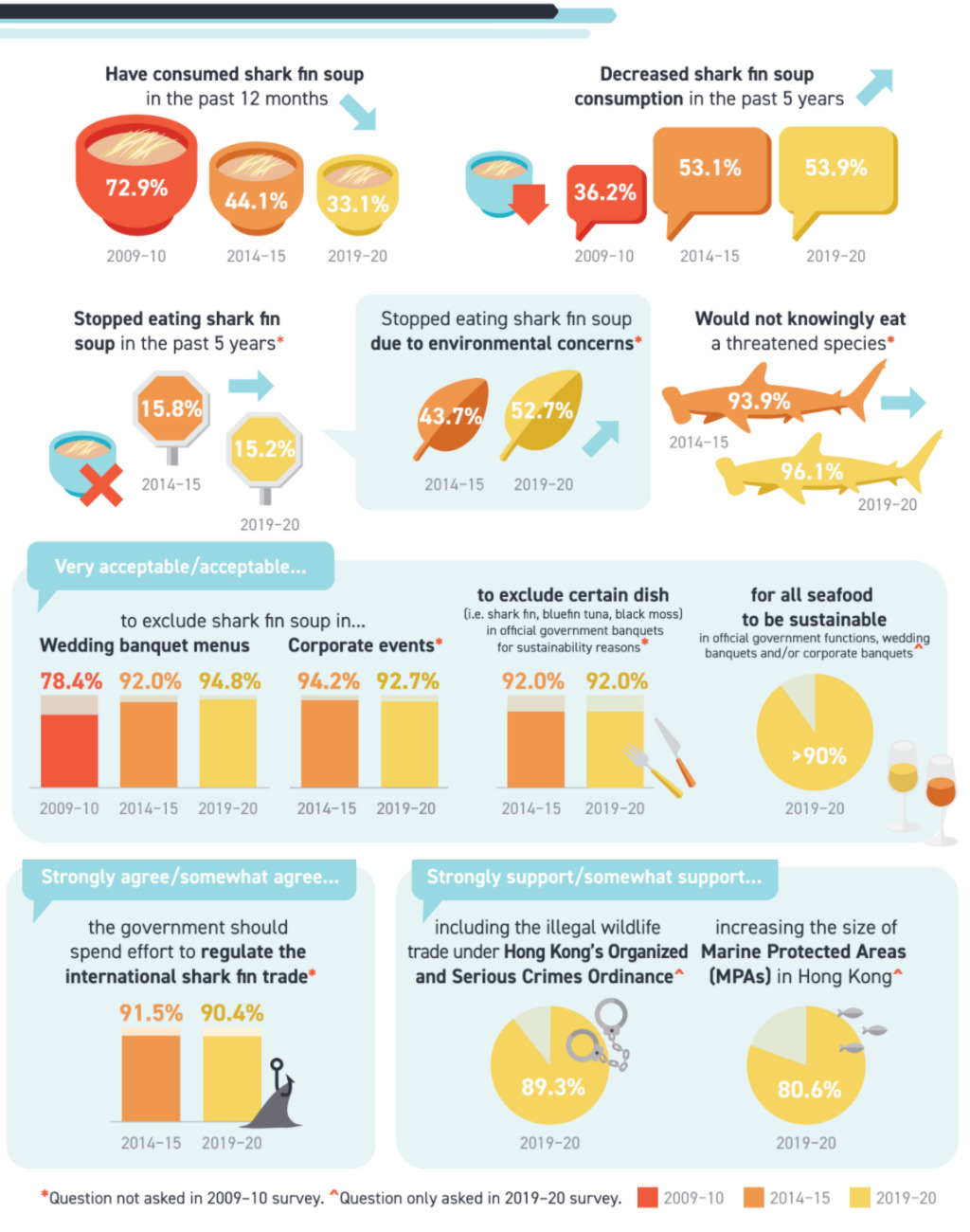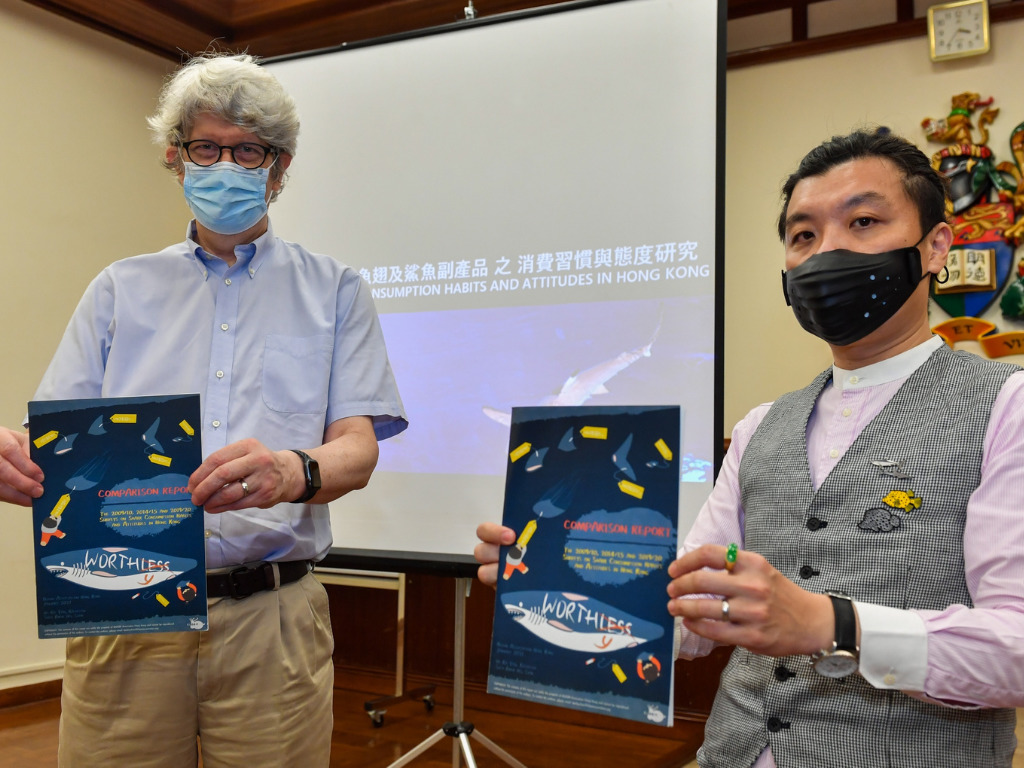3 Mins Read
According to a ten-year sociological survey on Hong Kong’s shark fin consumption, the world’s biggest shark fin market is changing. Hongkongers are now more likely to support government initiatives for conservation as well as environmentally-friendly choices.
Led by BLOOM Association Hong Kong (BLOOM HK) and commissioned to the Social Sciences Research Centre of The University of Hong Kong (HKUSSRC), the survey is a first of its kind to assess the long-term changes in the city’s consumption pattern.
Shark Fin Demand
With the first survey conducted in 2009 and 2010, with two following studies held in 2014 and 2015 and 2019 and 2020, the researchers conducted telephone interview surveys in 5-year intervals within the decade targeting over 1,000 local Hong Kong citizens each year with questions surrounding how often they consume shark fin soup and other shark-based products to their thoughts on sustainability and supporting initiatives that protect wildlife and marine life.
In the first survey, when asked how often respondents consumed shark fin soup in the previous 5 years, 58.1% of respondents said it “stayed the same” with this number falling to 19.0% in the final study. More than 53% said that they reduced consumption (from 36.2% in the first study) and 15.2% said they completely stopped consuming shark-based products.
In the 2009-2010 survey, 72.9% reported having shark fin soup at least once in the previous 12 months but in the latest research, this number fell to 33.1%. In addition, over 90% said they would be okay if shark fin soup was to be excluded from weddings and corporate events.
“Ten or twenty years ago, these results may have been difficult to imagine,” marine program director of BLOOM HK, Stan Shea said in a statement. “But we had confidence that Hong Kong people would care about protecting species threatened with extinction and support marine conservation initiatives if they were given a chance to understand the reasons why, even if this meant they had to change some behaviours. That’s why we decided to conduct these studies over a decade – so that we could see the changes take place”.

Ten or twenty years ago, these results may have been difficult to imagine. But we had confidence that Hong Kong people would care about protecting species threatened with extinction and support marine conservation initiatives if they were given a chance to understand the reasons why, even if this meant they had to change some behaviours
Stan Shea, marine program director of BLOOM HK
Protection for Marine Resources
Furthermore, the research found that respondents support the government in activities that would help protect marine resources with 90.4% of respondents in the final survey agreeing that the government should put more effort to regulate the international shark fin trade.
Respondents aged 18-29 were strongly in favour for the government to put policies and initiatives in place to regulate the international shark fin trade with 95.9% saying they “strongly agree” or “somewhat agree” and 94.4% “strongly support” or “support” the inclusion of illegal wildlife trade in OSCO.
The Illegal Wildlife Trade
At the time of this survey, only 28 out of more than 500 species of shark were regulated in international trade. Fewer than 10% of the region’s waters are reserved as Marine Protection Areas (MPAs) with 80.6% in favour of increasing this number with the younger age group more in favour of this as 87.8% showed support.
In a recent report called Trading in Extinction, data showed that Hong Kong still plays a huge role in the international illegal wildlife trade with authorities seizing an astounding and record-breaking 649 metric tonnes of rare and endangered wildlife species between 2018 to 2019 alone.
Cell-based food tech Avant Meats is one company that is encouraging consumers to shift to sustainable seafood with its cultivated fish products.
Read: The Most Exciting Alt Seafood Startups According To A Food Tech Investor
Lead image – Stan Shea (right) and Prof. John Bacon-Shone, director of HKUSSRC, courtesy of BLOOM HK.




